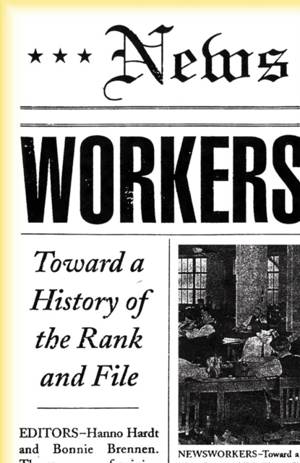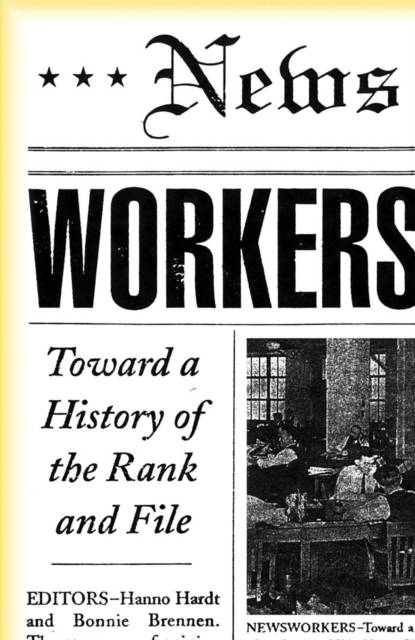
- Afhalen na 1 uur in een winkel met voorraad
- Gratis thuislevering in België vanaf € 30
- Ruim aanbod met 7 miljoen producten
- Afhalen na 1 uur in een winkel met voorraad
- Gratis thuislevering in België vanaf € 30
- Ruim aanbod met 7 miljoen producten
Zoeken
€ 30,95
+ 61 punten
Omschrijving
The first examination of the role of the laborer in media history.
What most of us know about media history begins and ends with Citizen Kane. The exploits of media moguls and visionary business leaders-these are the tales that fill media histories in the United States. What's missing is a crucial part of the picture: the rank and file of journalism, and the conditions under which they produced and participated in the business of journalism. Newsworkers supplies this side of the story.
Focusing on the period from the 1850s through the 1930s, the contributors show how issues of labor and class have been far more important in the formation of media institutions than previous accounts concede. These essays recover the history of ethnic and cultural diversity-including the contributions of women-that have enriched the process of communication. Contributors: Jon Bekken; Elizabeth (Elli) Lester, U of Georgia; Marianne Salcetti, John Carroll U; William S. Solomon, Rutgers U; David R. Spencer, U of Western Ontario; Barbie Zelizer, Temple U.Hanno Hardt is John F. Murray Professor of Journalism and Mass Communication at the University of Iowa. Bonnie Brennen is assistant professor of communication at SUNY, Geneseo.Specificaties
Betrokkenen
- Auteur(s):
- Uitgeverij:
Inhoud
- Aantal bladzijden:
- 256
- Taal:
- Engels
Eigenschappen
- Productcode (EAN):
- 9780816627073
- Verschijningsdatum:
- 23/10/1995
- Uitvoering:
- Paperback
- Formaat:
- Trade paperback (VS)
- Afmetingen:
- 151 mm x 229 mm
- Gewicht:
- 340 g

Alleen bij Standaard Boekhandel
+ 61 punten op je klantenkaart van Standaard Boekhandel
Beoordelingen
We publiceren alleen reviews die voldoen aan de voorwaarden voor reviews. Bekijk onze voorwaarden voor reviews.











